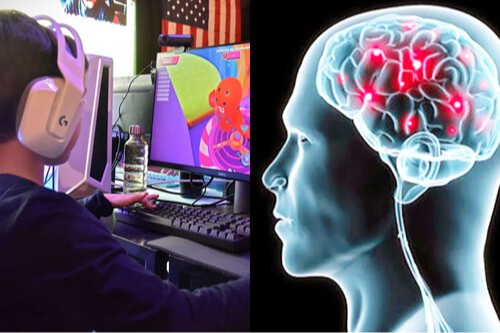Tax on violent video games in Mexico? A controversial measure that ignores the evidence
In September 2025, Mexico’s Ministry of Finance proposed an 8% Special Tax on Production and Services (IEPS) targeting violent video games, placing them in the same category as tobacco, soft drinks, and gambling. The measure is part of the 2026 Economic Package and aims to tax titles deemed inappropriate for minors, both in physical and digital formats, including memberships and additional content.

What does this tax entail?
- It will affect games like Grand Theft Auto V, Call of Duty: Black Ops 6, or Resident Evil Village, whose prices could rise between 8% and 10%.
- Digital platforms will be required to issue tax receipts with the breakdown and report transactions to the SAT.
- Games without violent content, such as Mario Kart 8 Deluxe, will be exempt.

Criticism from academia and the industry
Experts like Hans Leguízamo, sociologist and video game researcher, argue that this measure revives the “cyclical demonization” of digital entertainment without scientific basis. “There is no evidence proving a causal link between video games and violence,” he states. Maribel Reyes Calixto, an academic with over 12 years of experience in the field, describes the tax as “inconsistent and unfounded.”
Additionally, Mexican studies warn that:
- The measure could encourage piracy and harm a growing industry.
- It criminalizes youth and stigmatizes a legitimate form of cultural expression.
- It ignores structural factors of violence such as poverty, marginalization, and organized crime.

What do studies say about video games and violence?
Numerous international and Mexican studies agree that there is no direct relationship between playing violent video games and developing aggressive behavior. For example:
- The Digital Games Research Association (DIGRA) has documented that violent content alone does not generate violent behavior.
- Studies from UNAM, UAM, and UACM recommend analyzing video games through their cultural, narrative, and social dimensions—not as mere toys.

Positive effects of video games
Far from being a problem, video games can be tools for personal and social development:
- Therapy and mental health: Neurodivergent players like Danielle Guerrero have found in video games a way to manage anxiety and connect with others.
- Education and values: The government plans to launch “Wellness Video Games” to promote healthy habits and values such as empathy and cooperation.
- Creative industry: Mexico has over 72 million players and a growing local industry generating more than 2.3 billion dollars annually.

Personal opinion
More than a measure against violence, this tax seems like a fiscal maneuver lacking real substance. If the government genuinely believed that violent video games incite crime, it would seek to regulate or eliminate such content—not profit from it. Taxing digital entertainment while ignoring the deeper causes of violence—such as inequality, corruption, or lack of opportunity—reveals a strategy that fills public coffers without addressing the root of the problem.
Gaming is not a crime. It’s culture, community, and creation.
4
0
NEWSLETTER
Subscribe!
And find out the latest news
Etiquetas







